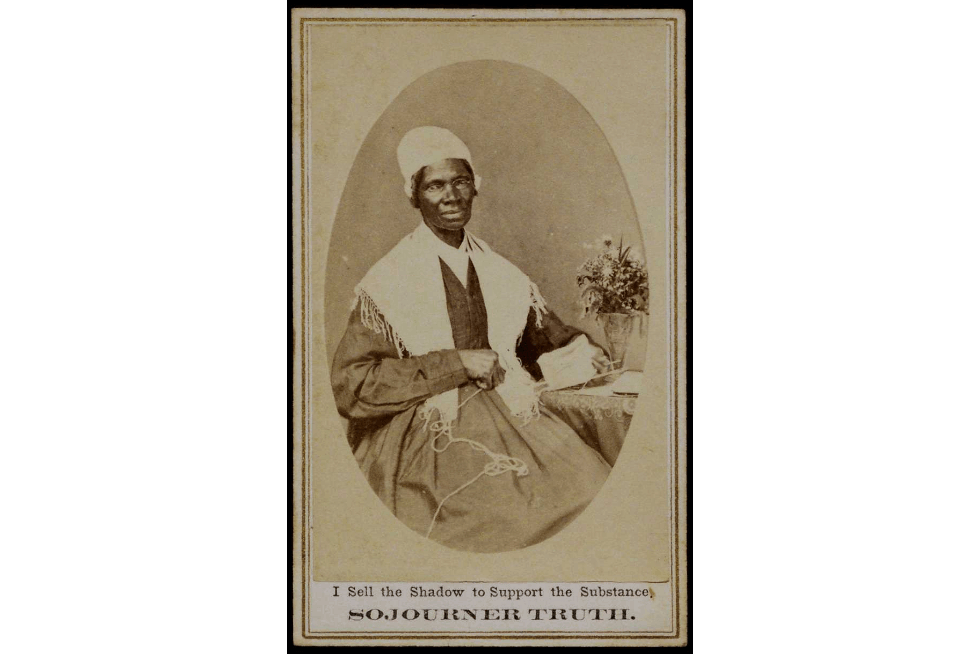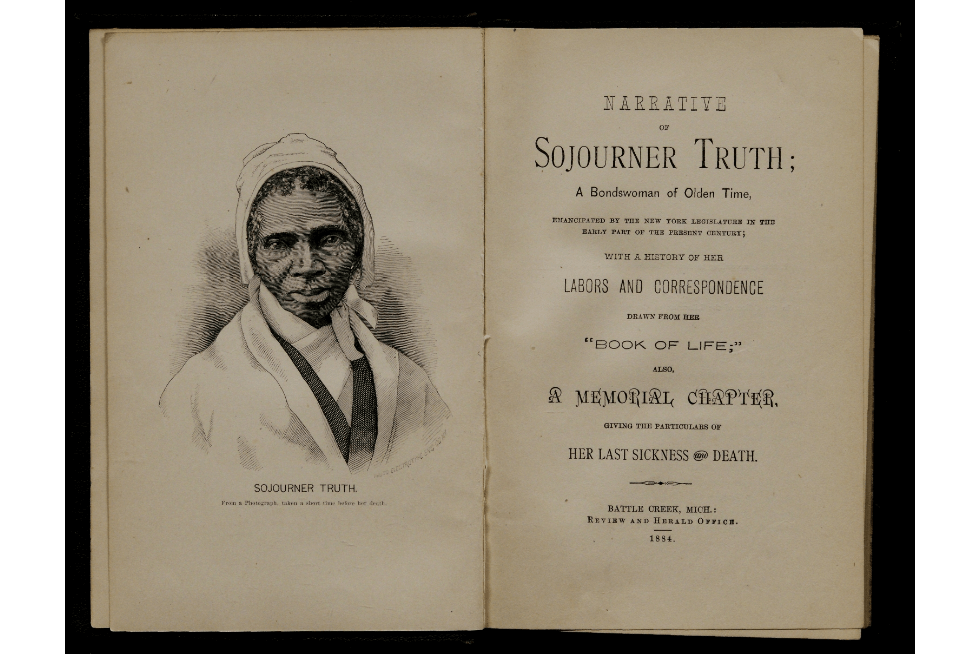"I'm going home like a shooting star": Sojourner Truth and Motherhood
Sojourner Truth was born as Isabella Baumfree, in around 1797, to James and Elizbeth Baumfree in New York. She was sold as a slave and separated from her family aged just nine years old, but went on to become an outspoken advocate for abolition and women’s rights in the nineteenth century.

Image © The Gilder Lehrman Institute of American History. Further reproduction prohibited without permission.
Sojourner Truth was born as Isabella Baumfree, in around 1797, to James and Elizbeth Baumfree in New York. She was sold as a slave and separated from her family aged just nine years old, but went on to become an outspoken advocate for abolition and women’s rights in the nineteenth century.
The theme of motherhood is prominent throughout her autobiographical book The Narrative of Sojourner Truth which features in American History, 1493-1945. In her book, she fondly remembers her own devoted and loving mother, ‘Mau-Mau Bett’, mother of as many as twelve children. Most of Mau-Mau's children were taken from her and sold as slaves, but her strong faith brings her solace and comfort. Despite their physical distance, she is determined to continue to ‘strengthen and brighten the chain of family affection’ as the following quote highlights,
‘[those] are the same stars, and that is the same moon, that look down upon your brothers and sisters, and which they see as they look up to them, though they are ever so far away from us, and each other.’

A Narrative of Sojourner Truth; A Bondswoman of Olden Time Image © The Gilder Lehrman Institute of American History. Further reproduction prohibited without permission.
Sojourner was also a devoted mother to five children, all of whom were born whilst she was enslaved in New York. The year 1826 was the year that Sojourner managed to escape to freedom. She managed to take her infant daughter with her but was forced to leave her other four children behind. She later found out that her five-year-old son, Peter, had been illegally sold as a slave to an Alabama plantation. Despite the great amount of risk involved in speaking out, Sojourner was determined to find her son and like her own mother, turned to God for both comfort and strength ‘I’ll have my child again… Oh my god! I know’d I’d have him agin. I was sure God would help me to get him.’ With the help of the Van Wageners, an abolitionist family, she successfully rescued her son from slavery and in doing so became the first black woman to win such a case against a white man.
Shortly before her death Sojourner said ‘I’m not going to die, I’m going home like a shooting star’ which perfectly embodies her strength, bravery and determination to stand up for what she believed in.
Sojourner’s star is still shining brightly today, as she continues to be remembered as one of the foremost leaders of the abolition movement and an early advocate of women's rights.
For more information about American History, 1493-1945, including booking a demo and price enquiries, please email us at info@amdigital.co.uk.
Recent posts

The blog highlights American Committee on Africa, module II's rich documentation of anti-apartheid activism, focusing on the National Peace Accord, global solidarity, and student-led divestment campaigns. It explores the pivotal role of universities, protests, and public education in pressuring institutions to divest from apartheid, shaping global attitudes toward social justice and reform.

This blog examines how primary sources can be used to trace the impact of young voices on society, particularly during pivotal voting reforms in the UK and the US. Explore materials that reveal insights into youth activism, intergenerational gaps, and societal perceptions, highlighting their interdisciplinary value for studying youth culture, activism, and girlhood across history.
